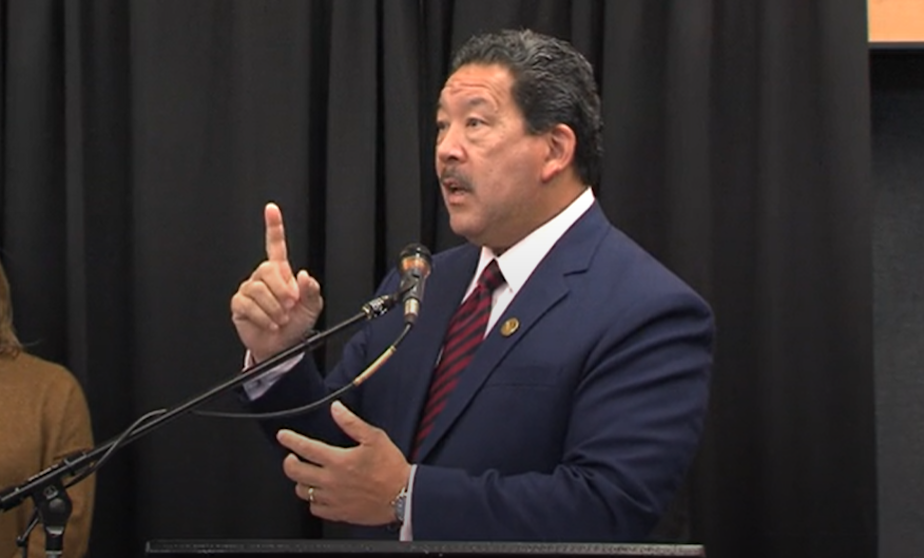Mayor Harrell orders Seattle departments to increase BIPOC contracts, with emphasis on Black-owned businesses

Mayor Bruce Harrell has issued an executive order instructing Seattle departments to prioritize contracting with women- and minority-owned businesses (WMBE), with an emphasis on Black-owned firms.
"We recognize that all communities are impacted by contracting equity, including LGBTQ-owned businesses, veteran-owned firms, immigrant-owned firms, and other small businesses," Mayor Harrell said Wednesday when announcing the executive order and its goals.
"We specifically talk about Black-owned businesses because the data suggests that is an area we need to target, and we believe by targeting that demographic, all boats rise," Harrell said.
According to the mayor's office, Seattle spent $900 million on goods and services in 2022. A total of $228 million was spent on consulting services with WMBEs. The office notes that 38% of the city's population is BIPOC, but 14% of the city's purchases and contracts are with BIPOC businesses.
The executive order stems from Seattle's WMBE Advisory Council that was formed in 2019. Much of the work around Harrell's executive order will be carried out through the city's Finance and Administrative Services Department. It will continue to work with the advisory council to develop tools for all city departments to use in this effort. The city will also update or replace its business directory to increase engagement with BIPOC businesses. The finance department will report annually on its progress.
Mayor Harrell closed by saying that, while the city can help create the business ecosystem so that "all boats rise," he is also urging business owners to actively help each other through this effort.
Sponsored
"If you're not doing that, if you're doing this just to line your pockets, just to make money, that's it, I have no interest in you," Harrell said. "There has to be a greater good you are trying to do. I'm trying to employ people as the mayor. I'm trying to get people emotional help, I'm trying to build networks. If you just care about lining your pockets with money, this may not be the executive order for you."
Among the order's supporters is Councilmember Sara Nelson who chairs the Council's Economic Development Committee.
“As a Seattle small business owner, I can’t overstate how important this kind of support is," Nelson said in a statement. "I have seen our local business community at its highest highs and through its most challenging times. What I know is that our city is at our best when we support each other, and right now women- and minority- owned businesses need our support. This executive order does that by increasing equity, opportunity, and the strength of our local economy.”

